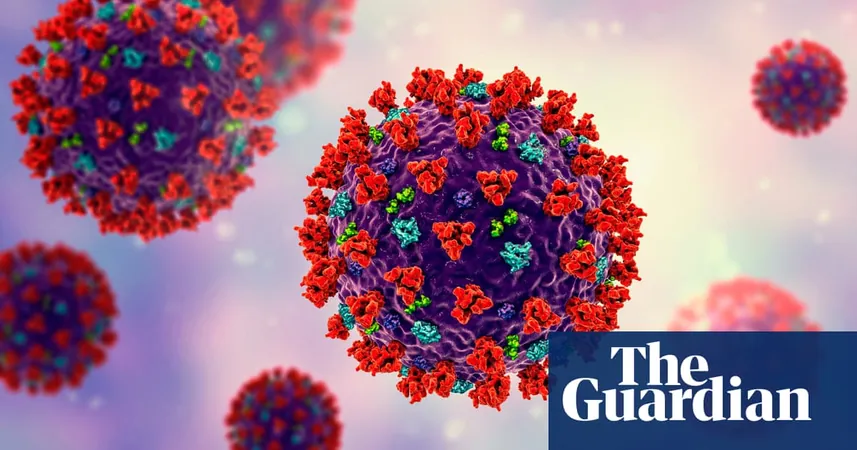
Unlocking the Secrets of Severe Covid: How It Damages the Brain's Control Center!
2024-10-07
Author: Ming
Recent research has revealed alarming insights into how severe Covid infections can lead to significant inflammation in the brain's "control center," the brainstem. This inflammation may explain the lingering symptoms such as breathlessness, fatigue, and anxiety that many post-Covid patients endure.
The study monitored 30 individuals who were hospitalized at the early stages of the pandemic, well before vaccines were available. They employed high-resolution MRI scans, which unveiled clear signs of inflammation in the brainstem—a vital area that regulates essential bodily functions, including breathing, heart rate, and blood pressure.
Dr. Catarina Rua, a neuroscientist at the University of Cambridge and the study's leading author, highlighted, "The abnormalities we observed in the brain's breathing-related regions strongly indicate that the enduring symptoms are a direct result of inflammation within the brainstem caused by Covid-19 infection."
This groundbreaking research took place prior to the widespread understanding of long Covid—a condition affecting an estimated 2 million individuals in England and Scotland alone, and tens of millions globally. Many sufferers report ongoing issues with breathlessness and fatigue, prompting speculation that inflammation within the brain could be a contributing factor.
"It is curious that while our study focused on patients with severe Covid, many with long Covid exhibit similar symptoms," Rua noted. "It raises the intriguing question: do those suffering from long Covid experience similar changes in the brainstem?"
Utilizing state-of-the-art 7 Tesla MRI technology, the researchers visualized the patients' brain structures in remarkable detail. Their findings indicated notable inflammation and microstructural issues within the brainstem that began to manifest weeks following hospital admission and persisted even more than six months later.
Moreover, the study found a worrying link between brainstem damage and mental health challenges. Patients displaying heightened levels of inflammation in this critical brain region also reported more severe physical symptoms, as well as increased levels of depression and anxiety. As detailed in a report published in the journal *Brain*, this correlation suggests that brainstem dysfunction might contribute to the mental health issues experienced by some post-Covid patients.
While this research does not definitively identify the causes of long Covid, it certainly shines a light on one potential source of the symptoms experienced by many. Paul Mullins, a neuroimaging professor at the University of Bangor, pointed out, "Although we cannot yet propose treatments for long Covid based on this study, it underscores the urgency of addressing inflammatory responses during the initial Covid infection."
In an era where millions are grappling with the aftereffects of Covid-19, understanding the neurological implications and seeking proactive measures to mitigate these inflammatory responses could be crucial in preventing the long-term consequences that are becoming all too common. Could this spark a new wave of research into treatments for long Covid? Stay tuned as the story unfolds!



 Brasil (PT)
Brasil (PT)
 Canada (EN)
Canada (EN)
 Chile (ES)
Chile (ES)
 España (ES)
España (ES)
 France (FR)
France (FR)
 Hong Kong (EN)
Hong Kong (EN)
 Italia (IT)
Italia (IT)
 日本 (JA)
日本 (JA)
 Magyarország (HU)
Magyarország (HU)
 Norge (NO)
Norge (NO)
 Polska (PL)
Polska (PL)
 Schweiz (DE)
Schweiz (DE)
 Singapore (EN)
Singapore (EN)
 Sverige (SV)
Sverige (SV)
 Suomi (FI)
Suomi (FI)
 Türkiye (TR)
Türkiye (TR)